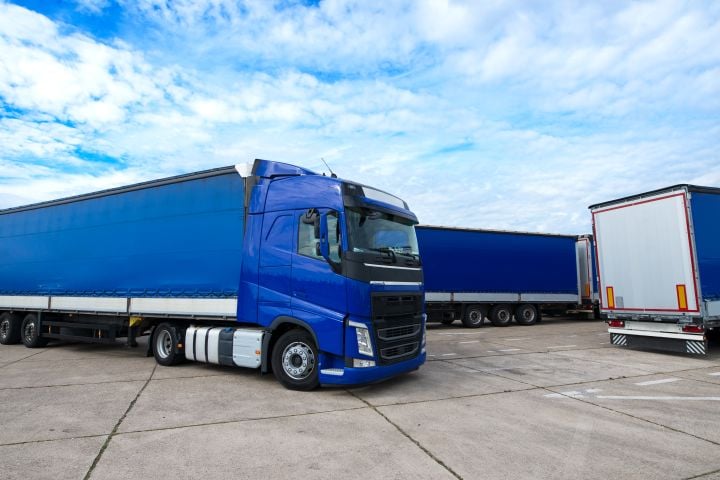The logistics industry relies heavily on truck dispatchers to ensure timely deliveries, effective route planning, and seamless shipment coordination. However, the role of a truck dispatcher comes with many challenges. Here are the challenges faced by truck dispatchers and the strategies to overcome them. By understanding truck dispatching challenges and implementing effective solutions, dispatchers can maximize their performance, improve operational efficiency, and ensure customer satisfaction.
Logistics Operation Management
Numerous shipments, drivers, and destinations are handled simultaneously by truck dispatchers, resulting in complex logistics operations. It can be difficult to coordinate delivery schedules, assign loads, and optimize routes, and find emergency fueling delivery services, especially in Florida, where fuel shortages are more common. Dispatchers must balance customer requirements, driver availability, and equipment capacity while taking into account time and budget constraints. Strong organizational skills, attention to detail, and the capacity to set priorities are necessary for effective logistics operations management.

Dealing with Time-sensitive Deliveries
Time-sensitive deliveries are a big challenge for truck dispatchers. Careful planning and constant monitoring are required to meet tight deadlines and ensure on-time arrivals. Delays caused by traffic, weather conditions, or unforeseen circumstances can disrupt schedules and affect customer satisfaction. To avoid delays and meet delivery windows, dispatchers need to be able to effectively communicate with drivers, monitor progress, and resolve any issues promptly.
Communication and Coordination
For truck dispatching to be successful, effective communication and coordination are essential. To ensure that everyone is on the same page, dispatchers must communicate clearly with drivers, customers, and internal teams. Delays, errors, and dissatisfied customers are all possible outcomes of miscommunication. Smooth operations need to communicate with drivers in real time, provide clear instructions, and promptly address any concerns.
Managing Truck Driver and Equipment Accessibility
Truck dispatchers face the challenge of managing driver availability and equipment efficiently. Careful planning is required to coordinate with drivers, ensure that they receive the required rest periods, and assign loads that match their preferences and skills. Dispatchers are also responsible for managing equipment availability, scheduling maintenance, and promptly resolving mechanical breakdowns or issues.
Adapting to Changing Conditions
The logistics industry is dynamic, with constant changes in routes, customer requirements, and external factors. Truck dispatchers must be adaptable and responsive to unexpected situations such as road closures, accidents, or last-minute order changes. They need to think quickly and make informed decisions to adjust routes, reroute drivers, and minimize disruptions while ensuring customer satisfaction.
Managing Stress and Pressure
Due to the fast-paced nature of the job, tight deadlines, and the need to manage multiple tasks simultaneously, truck dispatching can be a high-stress role. Under pressure, dispatchers must maintain composure and make important decisions. It is essential to be able to deal with stress, remains calm during emergencies, and effectively manage one’s workload to keep operations running smoothly and avoid burnout.
Leveraging Technology
Although technology has many advantages, truck dispatchers may find it difficult to incorporate and make use of technological solutions. Implementing and managing dispatch software, telematics systems, and other technology tools require training and adapting to new processes. Dispatchers must stay updated with new developments in technology, ensure proper integration, and fix any technical issues that may arise.
Enhancing Customer Service
Truck dispatchers must strike a balance between addressing a variety of operational issues and providing exceptional customer service. They need to understand the requirements of the customers, communicate effectively, and ensure timely deliveries.
Truck dispatching is a complex job that requires good coordination, good communication, and the ability to solve problems. Drivers, customers, and the logistics team all rely on dispatchers to keep deliveries on time and operations running smoothly. Here are some tips to help truck dispatchers navigate truck dispatching challenges and ensure success in their role.
Prioritize Effective Communication
Clear and timely communication is the foundation of successful truck dispatching. Establish efficient communication channels between dispatchers, drivers, and customers. Use technology tools such as two-way messaging, mobile apps, or dispatch software to facilitate real-time communication. Ensure active listening and maintain open lines of communication to address any issues or concerns promptly. Strong communication ensures smooth operations, reduces delays, and fosters positive relationships with all stakeholders.
Master Time Management
Effective truck dispatching requires proper time management. Improve your ability to prioritize tasks and organize well. Plan out a well-organized schedule for dispatching tasks like route planning, assigning loads, and communicating with drivers. Set aside time for unforeseen circumstances and anticipate delays or issues. Automate repetitive tasks and streamline workflows with technology tools. Effective time management allows dispatchers to respond promptly to changes, optimize route efficiency, and ensure on-time deliveries.
Embrace Technology Solutions
Technology plays an important role in truck dispatching. Invest in advanced dispatch software to streamline operations. Advance tools provide real-time visibility into fleet locations, track driver performance, and optimize route planning. Use GPS and route optimization software to reduce mileage and fuel consumption. By using technology, truck dispatchers can improve efficiency, ensure data accuracy, and provide better service to customers.
The logistics industry is constantly evolving, and staying updated on industry knowledge is important for truck dispatchers. Stay informed about changing regulations, industry trends, and emerging technologies. Enroll in truck dispatcher training to ensure hassle-free day-to-day operations, as well as the future growth of your company.
Final thoughts
Truck dispatchers plays an important role in the logistics industry by ensuring the smooth and efficient movement of goods from one location to another. Continuous learning allows truck dispatchers to stay ahead of industry changes, provide valuable insights to drivers and customers, and adapt to new technologies and practices.
We hope you found this blog post on What are the Challenges Faced by Truck Dispatchers?, useful. Be sure to check out our post on Empowering Truck Drivers with Freight Forwarding Software for more great tips!
Have Experience in the Moving Industry? Want an Additional Income Stream? Work With All Around Moving!
Partner with us, All Around Moving Services Company, Inc., and join the Work With Us program, and we’ll help you make money by establishing your own moving consultant business. Read the terms by Clicking here to learn more.





